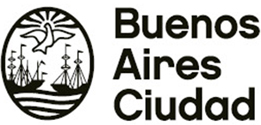Art history, science, education and various fields of visual culture are territories that Martín Legón (Buenos Aires, 1978) has been exploring since his earliest productions. He is constantly on the look-out for the contrasts and unexpected coincidences that typify his exhibitions and publications, which are constructed around the revealing use of montage. In his collages, assemblages, videos and treated objects, Legón produces images that relate worlds far removed from each other and raise probing questions that lead us to beware of what we see, what we consume and the tools we use daily without understanding them. In this exhibition, Legón intertwines two universes that also seem utterly alien to each other: ‘Escuelismo’ – which translates literally as ‘Schoolism’ – and artificial intelligence.
For the last two centuries, the manuals, games, handicrafts and countless other teaching materials of the traditional classroom, still vital for the transmission of knowledge, have nurtured our imaginations. This imagery entered the creative process of art in the latter half of the twentieth century with a bang, adopting its techniques and symbols to give form to a playful representation of learning, which came to be dubbed Escuelismo. Standing at the opposite pole of this deeply humanistic, craft-centred tradition, Legón encounters artificial intelligence, our latest unpredictable technological challenge. For the moment, we can manipulate these tools, with their capacity to produce an infinite array of images and texts, and the intense creative interactions of Chat GPT. This AI programme currently operates not only in social networks, advertising and communication but has also begun to be used in art. But we do not yet know how our relationship with this engine, which learns unchecked from the huge amount of data we keep feeding it, will impact society in the future.
This exhibition by Legón builds a paradoxical bridge between deeply analogue formal education and the sudden emergence of a knowledge technology that simultaneously opens up new horizons and, by its very existence, announces the end of the old paradigm. Falling somewhere between personal authorship and machinic automation, Legón’s kaleidoscopic works prompt in us a sense of disquiet as we stand before images that belong to two merging eras. At this crossroads, Martín Legón examines the present of our human experience and queries how we relate to images, how we construct knowledge and in what faraway place the mark of the human as we have known it will endure.
Curated by: Francisco Lemus
Museum Design: Iván Rösler
Production: Laura Roldán
Martín Legón (Buenos Aires, 1978) has held many solo exhibitions, some of his most recent ones are La seducción de los inocentes (Ángels, Barcelona, 2018), Quatrenial Shanzhai (Museo Genaro Pérez, Córdoba, 2018), Nuevos pensamientos imbéciles (Barro, Buenos Aires, 2017), Las fuerzas productivas (Barro, Buenos Aires, 2015), La vuelta al mundo… curated by Inés Katzenstein and Sofía Hernández Chong Cuy in collaboration with the Arts Department of Universidad Torcuato Di Tella and Colección Patricia Phelps de Cisneros (Buenos Aires, 2014), Principios para un manifiesto especular (Museo de Arte Contemporáneo de Rosario, Santa Fe, 2013), Así pasa la gloria del mundo (Galería Alberto Sendrós, Buenos Aires, 2011). He was one of the youngest Argentinian artists to have participated in the San Pablo Biennial in the XXX edition “The Imminence of Poetics” curated by Luis Pérez Oramas (2012). Some of his published essays are: La naturaleza del artificio (Big Sur Zine, 2012), El Test del Hombre bajo la lluvia (Arta Ediciones, 2012), Apuntes a la Colección Globus (Big Sur Books, 2016) and Maleza (Editorial Ivan Rosado, 2016). Legón’s works form part of several important collections such as Centro de Arte Dos de Mayo (CA2M) Móstoles, Spain; Museo Provincial de Bellas Artes Franklin Rawson de San Juan and Museo de Arte Contemporáneo de Rosario (Macro), Argentina. He lives and works in Buenos Aires.


